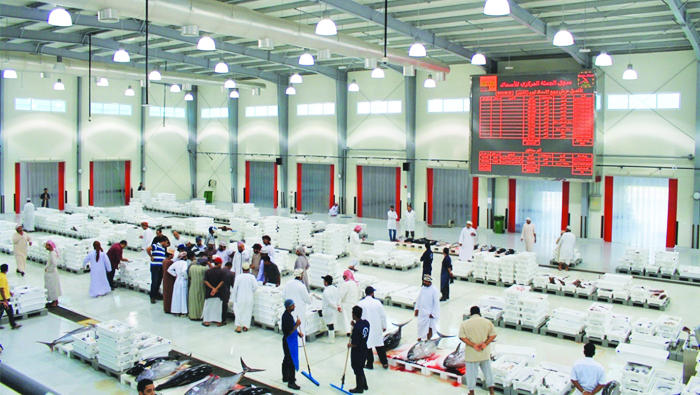
Muscat: The price of fish in Oman could fall due to an increase in production of up to twenty percent, according to The Ministry of Agriculture and Fisheries.
The increase would come due to an initiative which aims to introduce in the Arabian Sea and Indian Ocean large industrial vessels which can travel further and catch some types of tuna, mackerel, and sardines in quantities not possible at present in the Sultanate.
The experiment would run for two years. According to Ministry reports, Oman produced 348,000 tonnes of fish in 2017.
The fish caught by these commercial ships will mostly be exported to other countries, but 20 per cent of the catch would be reserved for the Omani market.
This increase in the supply could allow people to buy fish more cheaply than they currently do, according to Dr Hussain Al Muscati, Director of Development and Management of Fisheries Resources at the Ministry of Agriculture and Fisheries.
Al Muscati told Times of Oman, “This initiative will affect prices positively because 20 per cent of the production is contracted to be sold and used in the local market. This is a requirement and will affect the price of these types of pelagic (fish that live close to the surface of the ocean), which are various types of tuna.
“For small pelagic other than mackerel we are aiming to supply 50,000 tonnes per year; for other types, there is not currently an upper ceiling. Each ship is allowed to carry 10,000 tonnes for small fish,” he added.
Al Muscati also revealed that an experimental type of fishing boat has been operating off al Wusta since February. The Victoria produces horse mackerel for export as there is no demand for it locally and, according to Al Muscati,” The ship has already done good work so far; it has gotten a great yield.”
Al Muscati assured the Times of Oman that the ecosystem will not be impacted by this initiative and that the environment will remain safe. “The biomass for surface fish is about 1.9 million tonnes. What we actually fish is the surplus, not from the actual biomass, and in that way the ecosystem remains safe.
According to him, this initiative will not affect the jobs of trade fishermen at all.
“It’s a different area and different fish,” he explained. “Trade fishing starts at 6 nautical miles away from the coast, coastal fishing is 12 miles away. These longline vessels are far away, they must be at least 20 nautical miles away from the coast, and encirclement ships must be 40 miles away.”